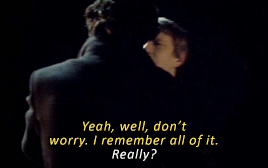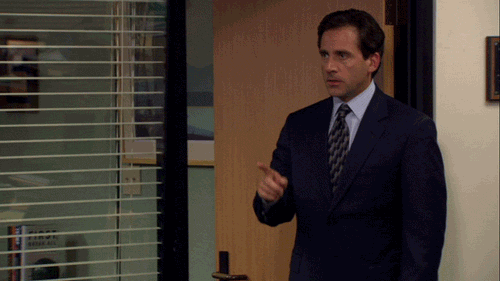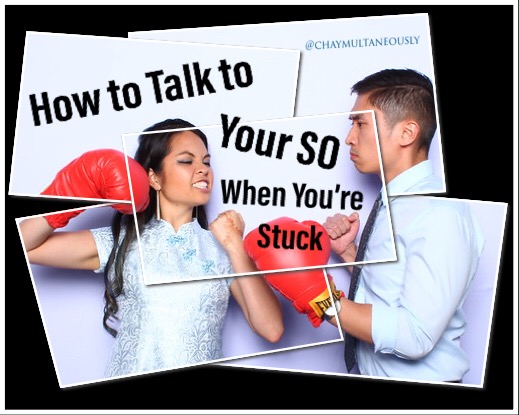Projection: A Memoir
The more I write, the more I realize how much there is to say and what would be helpful foundational topics.. so, in short, yes- I promised to give some Imago Dialogue for relationship help. And I will. But first.. projection has been on my mind ALL week.. it's something incredibly overlooked and, I believe, essential to understanding all human interaction with the world.
As with most psychology things, we have to start with Freud.
For all of his wild and crazy ideas, he did so much to get us started. His original idea was this: projection was the way our devious unconscious came out into the daytime; we saw our flaws magnified in others and we were forever irritated about it until we were able to face our own issues.
Later, like much later: 1970s, Ross, Greene, & House expanded this thought-- we didn't just see our flaws in others, but everything, good and bad. They named it the False Consensus Effect, describing it as a cognitive bias towards the fact that other people are more similar to us and think the same way as us, and they are broken or flawed somehow if they don't.
In both theories, one thing seems to be certain: we see ourselves in others.
Which is often why it's so hard for us to separate doing what's best for someone else, because we often act as though we are doing what's best for us in that position.
When celebrities rise and fall, the public on a whole has seemingly irrational reactions. Though we do not know these people personally and in all likelihood will never become close friends with them (..but I mean if Rihanna needs a new bff I am fully available), we rejoice when they win awards, we are offended over their latest decision to switch basketball teams, we will fight our close friends to the death over who wore the most gorgeous outfit, we weep when they lose a loved one or pass away themselves.
When celebrities have died by suicide, I have known many people to have felt loss and confusion for days on end, as though they lost someone they knew. We think: if this happened to them or for them, what does it mean for me? Even though we have zero connection with their personal lives, we still find a way to make it about us. That's not to say we are entirely egotistical; on the contrary, I think it speaks to the immense need we have as humans for connection.. and we empathize and sympathize even when we aren't trying to do it.
When celebrities have died by suicide, I have known many people to have felt loss and confusion for days on end, as though they lost someone they knew. We think: if this happened to them or for them, what does it mean for me? Even though we have zero connection with their personal lives, we still find a way to make it about us. That's not to say we are entirely egotistical; on the contrary, I think it speaks to the immense need we have as humans for connection.. and we empathize and sympathize even when we aren't trying to do it.
All of those pop quizzes you find online: "Find out which Kardashian you are", "If you were an Avenger, which would you be?", "Which Grey's Anatomy character would you be?", "Find out what your Game of Thrones house is." They all point to us mapping onto another person a mirror of ourselves somehow.
 |
| mah mirror starin' back at meee |
We also see ourselves in things.
My work with young kids makes this extremely obvious.
Much of therapy work is done using "projection" in the sense that it takes you out of the experience and onto a workbench, where you can lay everything out in front of you and see it in pieces. When I work with kids, we usually play. They often act out in the game, storytelling, or drawing what has been bothering them or cannot quite come into words for them yet. Because they are mostly id and growing into their ego, (that's more Freud for ya) they act mostly on instinct and still need to develop their awareness.
This was true for all of us as children; when we saw things we didn't understand, we played it out -- we grasped onto action figures and dolls and stuffed animals, we put them through situations that we wanted to know more about, and we tried to figure out what happened to them ...and what it meant for us.

That's where the memoir comes in; as we play out our projections, on our friends, our siblings, our moms and dads, our favorite celebrities, we write the story of who we are and our place in the world.
And things we tried to forget, like the time we broke our parents' window, or the shameful breakup, or the time we stole, or hit someone a little too hard; or even good things about ourselves, like our gift for art or cooking or writing or music or gardening or whatever that someone told us was worthless; we find others and things that jog our memory---because our brain is still looking for answers, for understanding, for completeness, for closure.
I have so. much. more. to write but let's start there.
Once you start seeing your interactions as combinations of your projections and those of the others around you, social interaction begins to unravel as something clearer, more manageable, and I would argue, even more beautiful.
Once you start seeing your interactions as combinations of your projections and those of the others around you, social interaction begins to unravel as something clearer, more manageable, and I would argue, even more beautiful.
 |
| it is only yourself. |







Comments
Post a Comment